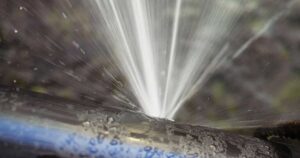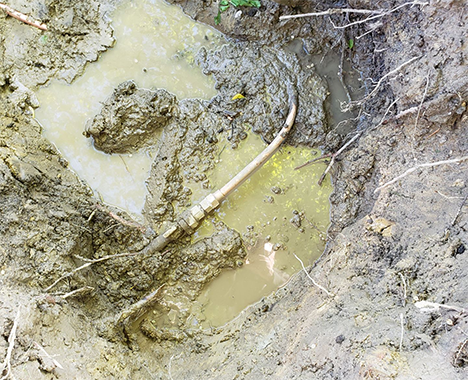
When a water main breaks, it can cause significant damage and disrupt the lives of residents. In a city like Chicago, where extreme weather conditions are common, burst pipe emergencies are not uncommon. Knowing what to do in such a situation can help minimize the damage and ensure the safety of everyone involved. This article will provide a comprehensive guide on what to do when a water main breaks in Chicago.
Understanding Water Mains
Before getting into the steps to take when a water main breaks, it is essential to have a basic understanding of what water mains are and their role in the city’s water supply. Water mains are large underground pipes that deliver treated water to homes, businesses, and other buildings. Chicago has an extensive network of water mains running beneath its streets, ensuring the constant flow of water to its residents.
Causes of Water Main Breaks
Water mains can burst due to various reasons. Some of the common causes include:
- Extreme weather conditions, such as freezing temperatures or excessive heat
- Aging infrastructure
- Ground shifts or movements
- High water pressure
- Corrosion or deterioration of the pipes over time
Understanding the causes can help identify potential areas of vulnerability and take necessary preventive measures.
Signs of a Water Main Break
Identifying a water main break early on is crucial in mitigating the damage. Some signs to watch out for include:
- Decreased water pressure in faucets
- Discolored water
- A sudden increase in water bills
- Audible sounds of rushing water beneath the ground
- Visible cracks or sinkholes near the water main
If you notice any of these signs, it is essential to take immediate action.
What to Do when a Water Main Breaks
When a water main breaks, follow these steps:
Report the Break
Contact the Chicago Department of Water Management or the local water utility company to report the water main break. Provide them with specific details about the location of the break and any visible signs of damage. Timely reporting can help expedite repairs.
Shut Off the Water
If you have access to the water shut-off valve in your building, turn it off immediately. This will help prevent further water damage and flooding. It is essential to know the location of the shut-off valve in advance to act swiftly during emergencies.
Evacuate If Necessary
In extreme cases where the water main break leads to flooding or poses a threat to your safety, evacuate the premises. It is better to prioritize personal safety above all else. If evacuation is necessary, alert the authorities and follow their instructions.
Protect Your Property
If your property is at risk of flooding due to the water main break, take steps to protect your belongings. Move furniture, electronics, and other valuable items to higher floors or areas less prone to water damage. Use sandbags or barriers to divert water away from your property.
Document the Damage
Take photographs or videos of any visible damage caused by the water main break. This documentation will be helpful when filing an insurance claim or seeking assistance for main water line repair service. Make sure to capture the extent of the damage accurately.
Stay Informed
Keep yourself updated on the progress of the repair work. Follow local news sources, social media accounts of authorities, or official channels for updates. Knowing the estimated timeline for repairs can help you plan accordingly and take necessary precautions.
Prevention and Maintenance
While it is not always possible to prevent water main breaks, regular maintenance and proactive measures can reduce the likelihood of such incidents. Some preventive steps include:
- Regular inspection and monitoring of water mains
- Prompt repair of any visible cracks or leaks
- Replacement of aging or corroded pipes
- Managing water pressure within acceptable limits
- Proper planning and coordination of construction activities near water mains
By investing in preventive measures, the city can reduce the occurrence of water main breaks and minimize the impacts on its residents.
In Summary
Water main breaks are unforeseen events that can cause significant inconvenience and damage. By knowing what to do when a water main breaks in Chicago, residents can take immediate action, report the break, protect their property, and ensure their safety. Additionally, understanding the causes and signs of water main breaks can help in taking preventive measures and maintaining the water supply infrastructure effectively. By working together and being prepared, we can minimize the impact of water main breaks and ensure a reliable water supply for all Chicagoans.

